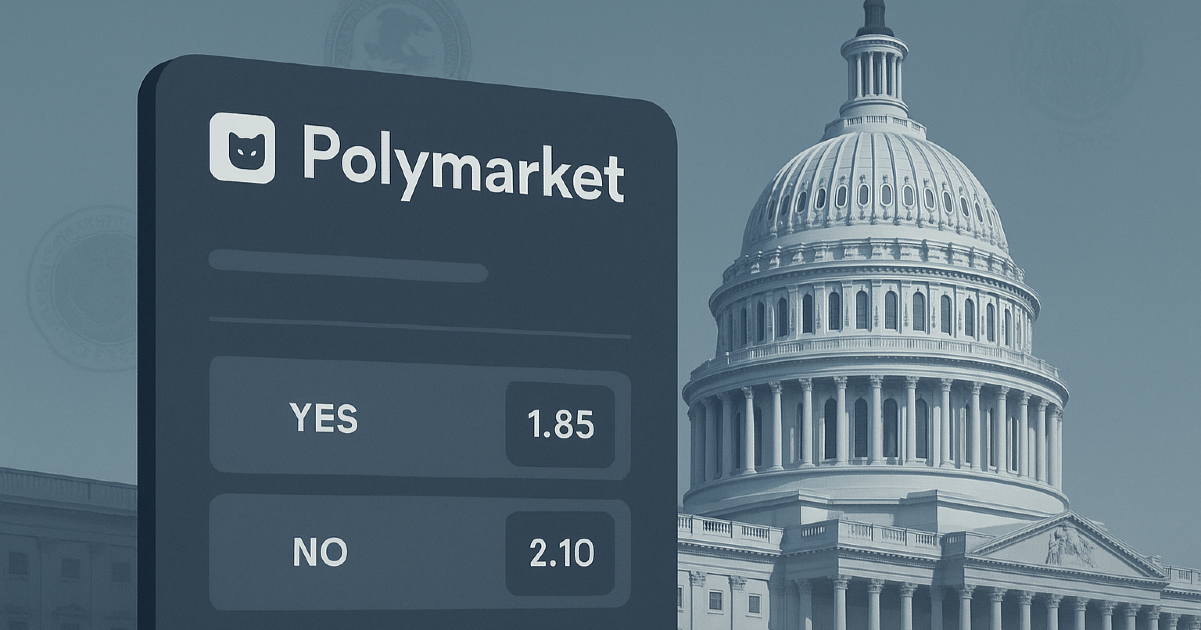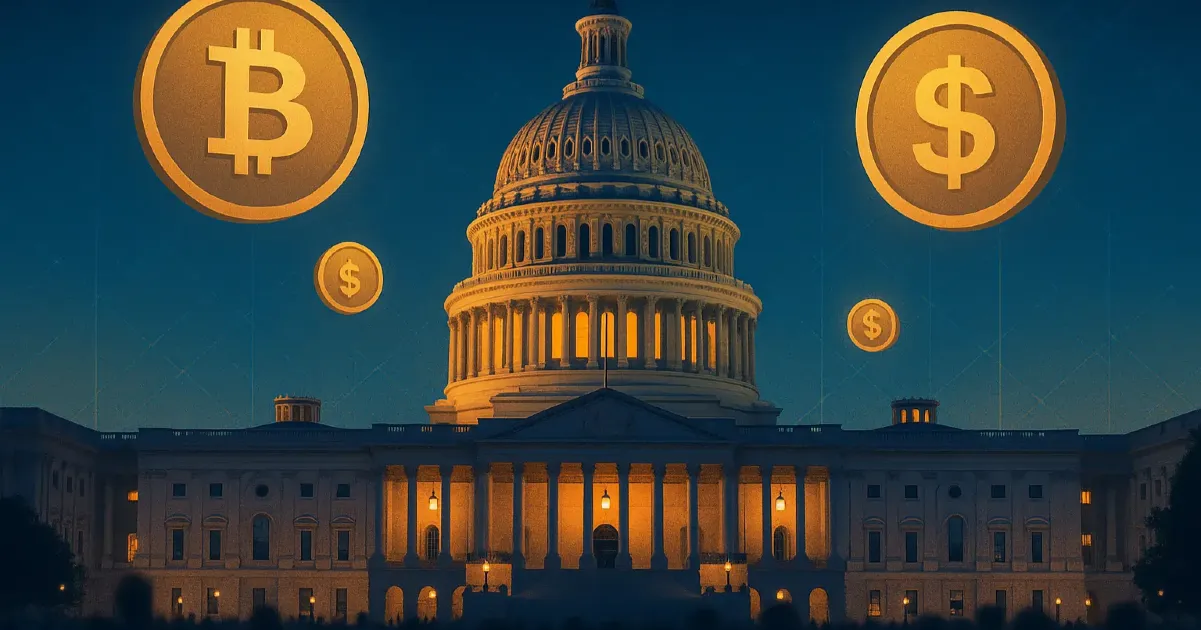Polymarket clears regulatory hurdles as U.S. Justice Department and CFTC end investigations ahead of its $200 million funding round.
In a development that could mark a pivotal moment for decentralized prediction markets, the U.S. Department of Justice (DOJ) and the Commodity Futures Trading Commission (CFTC) have reportedly ended their long-running investigations into Polymarket, according to a Bloomberg report. The closure of these probes, which had cast a cloud over the platform for months, now clears the path for Polymarket to proceed confidently with its plans, including a significant funding round reportedly valued at $200 million.
A Cloud Lifts Over Polymarket
Polymarket has long sat at the intersection of crypto innovation and regulatory gray zones. The decentralized prediction platform, known for letting users bet on outcomes ranging from political races to crypto market trends, faced increased scrutiny from U.S. regulators in the wake of the 2024 elections. Authorities had been investigating whether the platform was illegally allowing U.S.-based users to access markets that were potentially in violation of U.S. laws.
The DOJ’s and CFTC’s investigations reportedly intensified after those elections, especially as trading activity around political outcomes spiked. At the heart of the scrutiny was a question regulators have wrestled with across the DeFi space: When does a prediction market cross the line into unlicensed gambling or unregistered derivatives trading?
Although Polymarket has always positioned itself as a decentralized information market more about forecasting than gambling, regulators took notice of its U.S.-based footprint.
Flashback: The 2022 CFTC Settlement
This isn’t Polymarket’s first regulatory hurdle. In 2022, the CFTC slapped the platform with a $1.4 million fine for operating unregistered event-based binary options markets. That settlement included an agreement that the company would wind down certain contracts and implement compliance controls, especially around U.S. customer access.
Despite that earlier settlement, the latest round of investigations suggested authorities weren’t entirely satisfied. In fact, things escalated in late 2024 when the FBI reportedly raided the residence of Polymarket CEO Shayne Coplan, seizing electronic devices as part of the probe. At the time, the raid sparked serious concerns about whether Polymarket might face more punitive action or even be forced to halt operations.
But according to sources cited in Bloomberg’s recent coverage, the investigations have now quietly ended. While neither Coplan nor Polymarket has issued a formal public statement, the end of the probes is being viewed as a major de-risking moment for the company.
Timing Is Everything
For Polymarket, the timing couldn’t be better. The platform is currently in the midst of raising a massive $200 million funding round—a vote of confidence from venture capital circles that’s especially noteworthy given the cautious atmosphere surrounding crypto in the U.S. regulatory landscape.
With the investigations out of the way, Polymarket may now be able to attract institutional investors previously spooked by the potential for regulatory action.
Moreover, the decision by regulators to back off may also reflect a subtle shift in Washington's stance toward blockchain-based markets. In recent months, there’s been growing debate over how decentralized systems can fit within existing financial frameworks and whether new rules should accommodate their unique structure rather than trying to force them into legacy boxes.
The Broader Stakes
The implications go far beyond Polymarket itself.
Prediction markets have always carried enormous potential, both as a mechanism for surfacing collective intelligence and as a new form of decentralized finance. But they've also faced enormous regulatory skepticism, especially in the United States, where legal definitions of gambling, commodities, and securities are notoriously complex.
Platforms like Polymarket represent a new frontier: permissionless, censorship-resistant, and globally accessible betting markets that could potentially disrupt everything from polling to policy forecasting.
The end of the DOJ and CFTC investigations might signal a new phase of cautious acceptance, at least for platforms that can show a good-faith effort toward compliance.
A New Chapter for Polymarket?
If Polymarket can leverage this regulatory reprieve to scale its platform responsibly, it could cement itself as a leader in Web3 prediction markets. The demand is certainly there, especially as election cycles heat up globally and as traditional betting platforms continue to struggle with licensing restrictions, regional limitations, and opaque odds-setting practices.
For Polymarket, the opportunity is to present itself not just as a novelty platform for crypto-native users, but as a reliable and legitimate tool for understanding public sentiment, gauging market probabilities, and even enhancing democratic engagement.
But questions still linger.
Will regulators continue to look the other way as prediction markets become more mainstream? Could a sudden surge in volume, especially around politically sensitive topics, bring renewed scrutiny? And how will Polymarket navigate future compliance while still preserving the decentralized ethos that drew users in the first place?
What Comes Next?
For now, Polymarket’s future looks far brighter than it did even a few months ago. The end of federal investigations removes a significant legal overhang and could reignite interest from both users and investors.
The next big milestones will likely involve the closing of its funding round, a possible expansion into new prediction categories, and ongoing efforts to clarify its legal posture, potentially by geo-fencing certain jurisdictions, integrating KYC/AML mechanisms, or establishing clearer terms of use.
What’s clear is that Polymarket is no longer just an experimental corner of the crypto world. It’s now operating on a larger stage, and every move from here on out will be watched more closely than ever.






